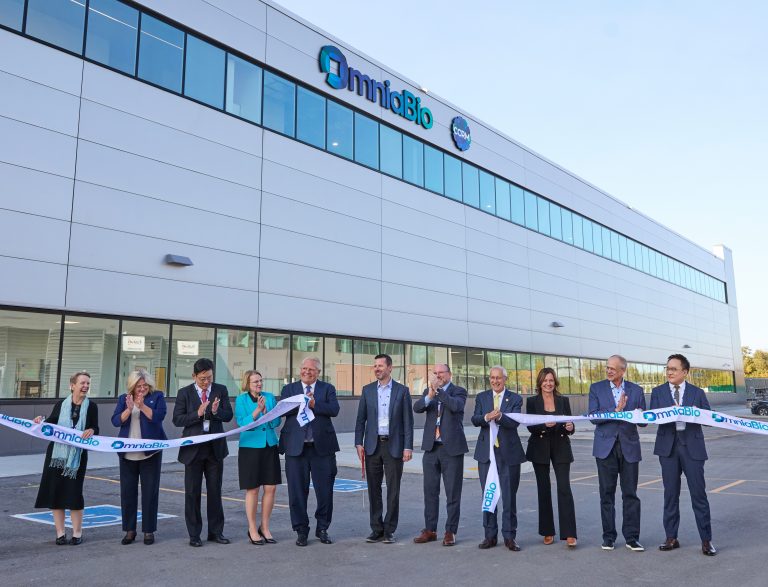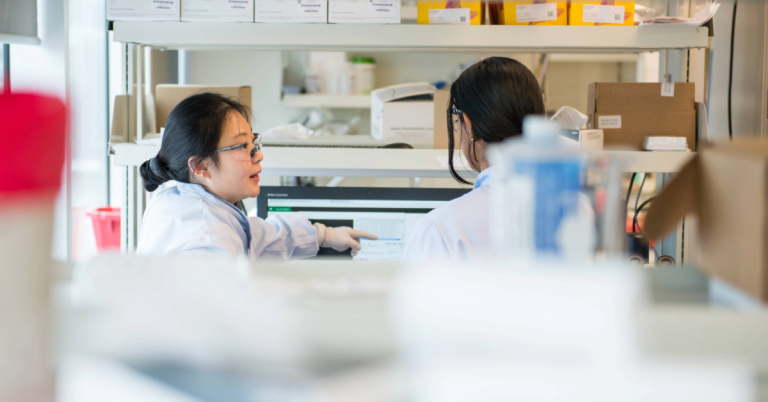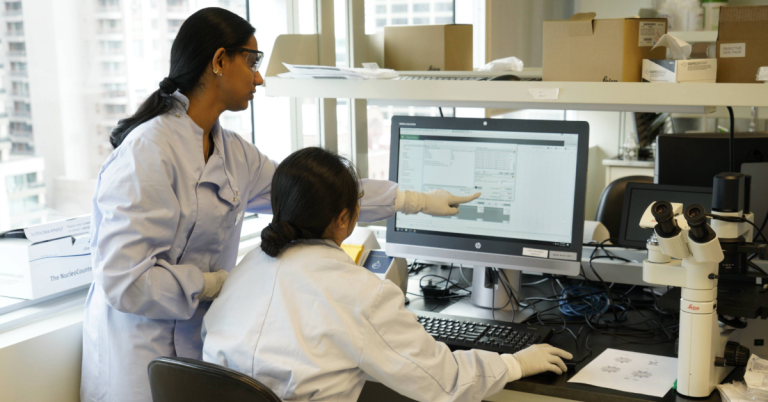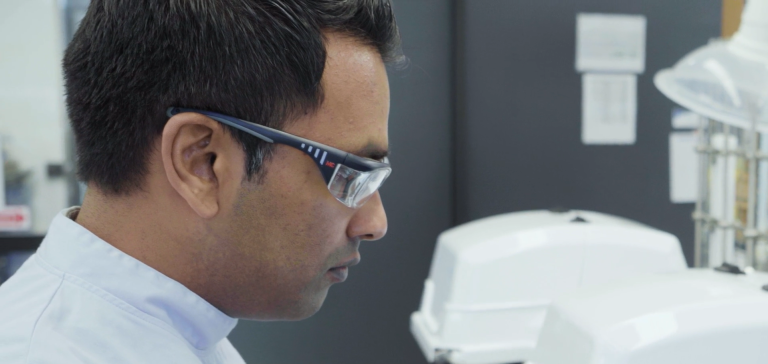This blog will explore how developing customized solutions for system closure and process automation solves key technical bottlenecks, advances the manufacturing of, and ultimately patient access to, these life-saving medicines.
April 9, 2024
| OmniaBio
The Vital Role of Process Closure and Automation in CAR-T Manufacturing
Chimeric antigen receptor (CAR)-based T cell immune therapies are now a widely recognized treatment option for some hematological cancers. According to a recent long-term follow-up review, their ability to provide durable and potentially curative outcomes is becoming increasingly evident. Based on this initial success, many new CAR-T technologies, including bi-specific CAR-T cells, TRUCKs (T cells redirected for universal cytokine-mediated killing) and universal CAR-T allogeneic candidates, are being evaluated to treat patients with both liquid and solid malignancies.
To realize the full potential of these cutting-edge adoptive immunotherapies, innovative approaches to their manufacture are urgently needed, not only to improve the consistency and quality of the final drug product, but also to address the high cost of goods sold (COGS) involved in the manufacturing of these types of treatments.
This blog will explore how developing customized solutions for system closure and process automation solves key technical bottlenecks, advances the manufacturing of, and ultimately patient access to, these life-saving medicines.
The Challenge of CAR-T Manufacturing
The primary challenge of manufacturing CAR-T therapies relates to the complex unit operations involved in producing these “living drugs.” For example, a typical autologous CAR-T manufacturing process involves isolation and selection of patient cells, in vitro activation, and subsequent gene transfer to introduce the CAR. Subsequently, the cells are expanded to a clinically sufficient density, harvested, and transferred into containers ready to be infused back into the patient for whom they were generated. This is known as “autologous” cell therapy.
In recent years, one of the most impactful innovations in autologous CAR-T manufacturing is the development of the rapid manufacturing of T cells, led by Novartis’ T-Charge program and Gracell’s (now a part of Astra Zeneca) FAST CAR. These therapeutics companies have successfully reduced the manufacturing timelines (and costs) associated with autologous CAR-T from 1-2 weeks down to 1-3 days. There is compelling evidence that decreasing the amount of time T cells are expanded in vitro leads to products with both superior potency and a significantly decreased manufacturing cost, given their shorter duration in cGMP clean rooms.
Yet, even with rapid manufacturing approaches, the inherent complexity and patient safety implications of any error during manufacturing requires that both cell and gene therapy developers and Good Manufacturing Practices (GMP) manufacturers drive towards two important Chemistry, Manufacturing and Controls (CMC) concepts: process closure and automation.
Process Closure and its Role in Ensuring Product Quality
Process closure refers to the isolation of the manufacturing process to minimize external influences and protect product integrity. CAR-T cell therapies require a controlled environment that minimizes the risk of contamination, variations in cell culture and downstream manufacturing steps. For example, implementing closed systems, such as single-use bioreactors and closed aseptic processing, significantly reduces the chances of microbial contamination and protects the delicate cell cultures from contaminants. There are several solutions currently available, including end-to-end closed systems such as the Miltenyi CliniMACS Prodigy® and the Lonza Cocoon®, as well as closed single unit operations such as the Cytiva solutions (Sepax C-Pro and Xuri Cell Expansion Systems) and the Scale Ready systems (G-Rex and the Lovo® and Cue cell processing systems) that can be combined to create closed workflows for CAR-T processing.
New technologies are being developed that are looking to further improve CART manufacturing including MFX (formerly MicroFluidX) a company developing next-generation, closed, automated, scalable workflows for cell therapy production. MFX uses their understanding of fluidics to create a series of parallel chambers to culture the cells and enable true scalability of the process. CCRM, OmniaBio’s parent company, has announced a collaboration with MFX.
Process Automation: Enhancing Safety and Patient Well-Being
Automation plays a pivotal role in enhancing safety throughout the manufacturing process. For example, by minimizing manual interventions through the introduction of automation, manufacturers can reduce the likelihood of introducing human error that compromises the product’s quality.
Although significant investment and innovation is crucial to enhance process automation, these systems have the potential to detect deviations from predetermined parameters and, with sufficient data and data analysis tools, can take corrective actions promptly.
One interesting example of advanced process automation for cell therapy manufacturing is Adva Biotechnology's ADVA X3 bioreactor. The bioreactor has both optical and biosensors to allow the monitoring and control of 14 process parameters, including glucose, lactate, pH and dissolved oxygen. Their technology enables continuous adaptive multi-parameter (CAMP®) control of the culture environment. In time, artificial intelligence will enable the optimal culturing conditions for cells with minimal operator input. This, in turn, will minimize the potential for adverse events during therapy administration to patients.
Scale-out and Industrialization of Autologous CAR-T Manufacturing
Process closure and automation both contribute to the efficiency and the scale-out of CAR-T cell therapy manufacturing. With integrated automation, closed systems enable faster turnaround times, reducing overall production timelines and costs. By reducing the manual labour required, automation frees up skilled personnel to focus on higher-value tasks, such as process optimization and quality control.
Several companies, such as Multiply Labs, are aiming to provide complete end-to-end automation for CAR-T manufacturing by using robotics that enables a reduction in labour and clean room costs. Co-development with end users will be critical as tools and technology companies are working on solving manufacturing challenges with a single system. The industry continues to watch in anticipation to see how these single-system solutions will address manufacturing challenges for CAR-T and to see how these might expand to address additional complex modalities. These solutions will hopefully render these life-changing therapies more accessible to the broader patient population.
Regulatory Compliance is Strengthened
Process closure and automation can also assist in meeting regulatory requirements by providing robust documentation, traceability and process control. Automated systems offer enhanced documentation and data management capabilities, ensuring the traceability of critical process parameters, raw materials and quality control checks. Automation can also enable real-time monitoring, data collection and process control, enabling accurate documentation and ensuring compliance with regulatory standards.
Future Perspectives
As the field of cellular immunotherapy continues to advance, the importance of process closure and automation will become even more significant. Ongoing efforts are focused on developing closed, automated systems that integrate cutting-edge technologies like machine learning and artificial intelligence to optimize manufacturing processes further. These advancements will not only enhance the safety and quality of CAR-T cell therapies but also improve their accessibility and affordability by driving down COGS, ultimately benefiting patients worldwide.
Visit our website or contact us to learn more about our immune cell therapy solutions to address your CAR-T manufacturing needs.
About The Authors
Neil Blackburn, PhD, Senior Director, Process and Analytical Development, OmniaBio Inc.
Neil earned his PhD from the University of Guelph and focused on protein biochemistry and immunology. His post-doctoral training at Eli Lilly and Company focused on dendritic cell tolerization and the interaction of immune cells with novel TLR ligands. Neil next led the development and commercialization of immunochemical-based clinical assays and companion medical devices (Siemens Healthineers) before spending 14 years at Sanofi, in their vaccines division. Holding roles of increasing responsibility at Sanofi, Neil was ultimately accountable to lead transversal CMC teams tasked with ensuring the successful transfer of candidates from early development into late-stage pilot and final launch commercial facilities. He has experience developing tech transfer and PPQ strategies that take full advantage of the QbD design space established in earlier phases of CMC development. Prior to joining OmniaBio, his most recent role was in the small biotech CGT space focused on the development of two complementary assets targeting solid tumours (TILs and oncolytic viruses). Neil has comprehensive experience designing phase-appropriate CMC strategies that meet global regulatory requirements.
Paul Bowles, PhD, Associate Principal Scientist, Cell and Immunotherapies, OmniaBio Inc.
Since obtaining his PhD in immunology, Paul has spent more than a decade in cell and gene therapy process development. Paul started his industrial career working first at GE Healthcare and then as part of a collaboration between Cytiva and CCRM, where he worked on process development of various immunotherapy platforms. Paul developed several closed, semi-automated processes, a CAR-T cell, and an antigen-specific T-cell process that went into Phase I/II clinical trials. He then worked at Treadwell Therapeutics, leading the process and analytical team focused on TCR-T therapies. Paul currently works as an Associate Principal Scientist and co-lead of the Immuno Cell Therapy platform, responsible for developing robust platform processes that OmniaBio offers to benefit therapeutic sponsors.
Related Content
Loading...




